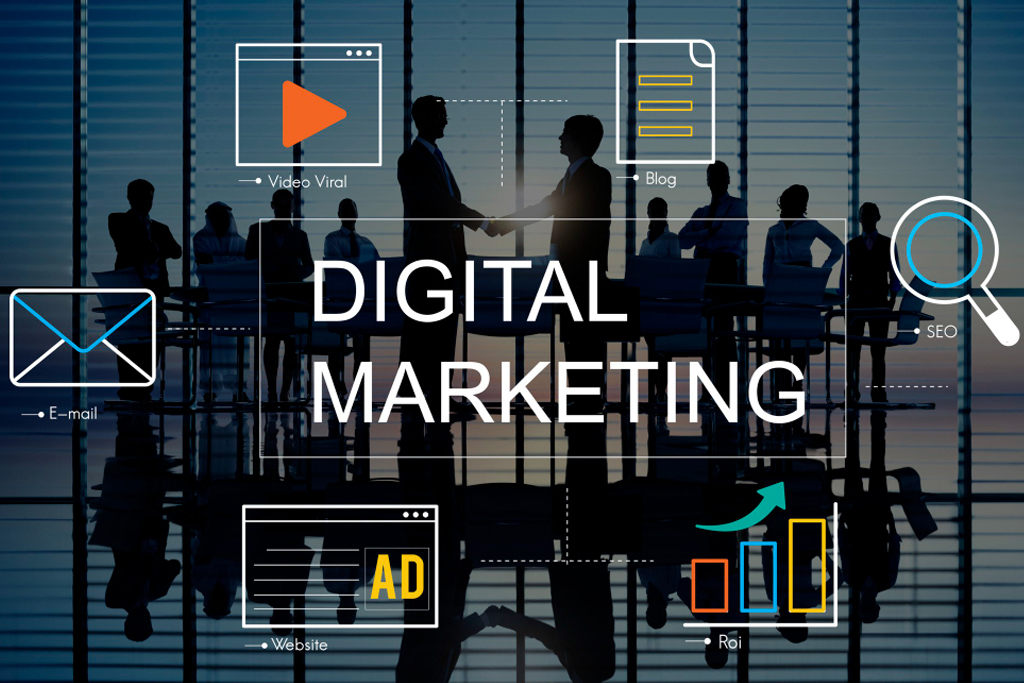
Digital transformation and its significance in reshaping business models, processes, and customer experiences are paramount in today’s digital landscape. Digital Marketing is the integration of digital technologies into all aspects of business operations, leading to fundamental changes in how organizations operate and deliver value to customers. The introduction highlights the imperative for organizations to embrace digital transformation to remain agile, innovative, and competitive in a rapidly evolving digital economy. By leveraging Digital Marketing strategies such as Content Marketing, Email Marketing, Search Engine Optimization, and Social Media Marketing, organizations can enhance their reach, engage more effectively with customers, and drive meaningful interactions that foster brand loyalty and business growth.
This approach emphasizes collaboration, flexibility, and customer satisfaction. Agile Development enables teams to work in short cycles, known as sprints, allowing them to adapt quickly to changing requirements and market conditions. By breaking projects into smaller, manageable pieces, Agile teams can deliver value more frequently and with greater responsiveness to user needs. This iterative process also fosters a culture of continuous improvement, as teams regularly review their progress and make necessary adjustments. Whether it’s for Website Design, Mobile App Development, or complex web services, Agile ensures that the final product meets the evolving demands of users.
Embark on a captivating journey through the annals of software development history as we trace the remarkable evolution of Agile methodology—a revolutionary approach that has transformed the way teams conceptualize, build, and deploy software. Through an in-depth exploration of Agile principles, methodologies, and frameworks, readers will gain a newfound appreciation for its profound impact on fostering collaboration, enhancing productivity, and mitigating risk. With insightful anecdotes and real-world case studies, this article illuminates the pivotal role Agile Development plays in enabling organizations to adapt to changing market dynamics, innovate, and deliver unparalleled value to their customers, supported by the strategic integration of Digital Marketing, UI/UX Design, and robust Web And Mobile Apps.
The Birth of Agile
- Explore the origins of Agile methodology, which emerged in response to the limitations of traditional, waterfall-style software development approaches. Learn about the seminal Agile Manifesto, crafted in 2001 by a group of software developers seeking a more flexible, iterative approach to software development.
- Understand the core principles of the Agile Manifesto, including prioritizing individuals and interactions over processes and tools, delivering working software frequently, embracing change, and fostering collaboration between cross-functional teams. Agile methodologies are now widely applied in UI/UX Design processes to ensure that user interfaces are both intuitive and responsive to user feedback.
Agile Methodologies and Frameworks
- Dive into the various Agile methodologies and frameworks that have emerged over the years, each offering its own set of practices and processes tailored to different contexts and team dynamics. Explore methodologies such as Scrum, Kanban, Extreme Programming (XP), Lean, and DevOps, which are commonly used in the development of web and mobile apps.
- Learn about the key principles, roles, ceremonies, and artifacts associated with each Agile methodology, as well as their strengths and limitations in different organizational environments. These methodologies are crucial for teams developing complex Web Services And API Integrations, ensuring that all components work seamlessly together.
The Agile Mindset
- Explore the mindset shift required to embrace Agile principles and practices effectively. Understand the importance of transparency, collaboration, feedback, and continuous improvement in Agile teams.
- Learn how Agile Development practices, such as customer collaboration, responding to change, and delivering working software, drive a culture of adaptability, innovation, and customer-centricity within organizations. This mindset is particularly valuable in UI/UX Design, where user satisfaction is paramount.
Agile at Scale
- Discover how Agile principles and practices can be scaled to large, complex projects and organizations. Explore frameworks such as Scaled Agile Framework (SAFe), Large-Scale Scrum (LeSS), and Disciplined Agile Delivery (DAD) that provide guidance for scaling Agile Development across multiple teams and departments.
- Learn about the challenges and considerations involved in scaling Agile, including alignment of priorities, coordination of dependencies, and maintaining consistency across teams. This is especially relevant for enterprises managing extensive web services and API integrations.
The Evolution of Agile Practices
- Trace the evolution of Agile practices over time, as teams adapt and refine their approaches in response to changing business needs and technological advancements. Explore modern practices such as Continuous Integration (CI), Continuous Delivery (CD), Test-Driven Development (TDD), and Behavior-Driven Development (BDD).
- Understand how Agile Development practices integrate with other methodologies and practices, such as DevOps, Lean Startup, and Design Thinking, to create synergies and enhance overall effectiveness. These practices are essential for developing scalable web and mobile apps that can respond quickly to market changes.
The Impact of Agile on Business Agility
Delve into real-world case studies and examples showcasing the transformative impact of Agile on organizations of all sizes and industries. Learn how Agile Development enables organizations to adapt to changing market dynamics, respond to customer feedback quickly, and innovate with agility. Explore how Agile principles, such as iterative development, incremental delivery, and cross-functional collaboration, empower organizations to deliver unparalleled value to their customers while mitigating risk and maximizing ROI. The integration of digital marketing strategies provides real-time feedback that is crucial for Agile teams to prioritize features, refine product strategies, and align the final product with customer needs and expectations.
Digital Marketing plays a crucial role in supporting Agile Development by providing real-time data and insights that can inform decision-making throughout the development process. Through tools like social media, SEO analytics, and customer feedback, digital marketing teams can gather valuable information about user behavior, preferences, and market trends. This data can then be used by Agile teams to prioritize features, refine product strategies, and ensure that the final product aligns with customer needs and expectations. Additionally, digital marketing campaigns can be synchronized with product releases, creating a seamless experience that drives user engagement and accelerates product adoption.
Let’s catch each other to discuss how Agile methodologies will help you to boost efficiency and collaboration for your business. Contact our experts at info@evoquesys.com or call +91-986-136-6622 for a free consultation.



